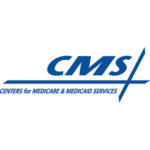 Centers for Medicare & Medicaid Services released 5 years of pricing data for a list of more than 5,000 drugs this week. The data illustrate that a handful of cost-driving drugs experienced price hikes in 2015, which cost taxpayers millions in added Medicare spending.
Centers for Medicare & Medicaid Services released 5 years of pricing data for a list of more than 5,000 drugs this week. The data illustrate that a handful of cost-driving drugs experienced price hikes in 2015, which cost taxpayers millions in added Medicare spending.
The price of some drugs went up almost 500%, with name-brand drugs experiencing the largest price spikes. According to the data, medications used to treat conditions such as hepatitis C, diabetes and high blood pressure cost taxpayers more than $14 billion last year. In response to the agency releasing the data, CMS Acting Administrator Andy Slavvit tweeted, “When taxpayers pay, prices should be public.”
Within drugs that patients administer themselves, a high blood pressure medication called Cozaar had the largest price increase, jumping 491% to $3.22 per unit. A hepatitis C medication, Harvoni, had the highest total spending at $7 billion. Sanofi‘s (NYSE:SNY) Lantus insulin injection ranked 2nd at $4.3 billion. The highest average cost per unit medication was Eyelea, which is indicated for age-related macular degeneration, at $35,457 per unit.
For Medicare Part B, which includes medications administered by doctors, a chemotherapy drug called mitomycin had the largest price jump, increasing 163% to $58.07 per unit with total spending above $15 million. Medicare spent $1.9 billion on Aflibercept, an injection for age-related macular degeneration. The highest average cost per unit drug was sipuleucel-t, an immunotherapy for prostate cancer. The therapy costs $35,205 per unit.
The pharmaceutical industry’s pricing problems were highlighted last year, after Turing Pharmaceuticals raised the price of its malaria drug Daraprim from $13.50 to $750 a pill. This year, Mylan (NSDQ:MYL) has faced criticism after reports revealed that the company raised the price of its emergency allergy device by 500% since it acquired the product from Merck in 2007.
Centers for Medicare & Medicaid reported in November that Mylan underpaid CMS for its auto-injector by misclassifying the device as a generic. Mylan agreed to pay $465 million to settle the claims, but the federal government has not acknowledged the deal. In the settlement, Mylan said it will reclassifying the EpiPen as a branded drug in April 2017, which means the company will pay 23% in rebates instead of 13%.
This week, pharma and biotech shares dropped after Time published an interview with Donald Trump where he promised to “bring down drug prices”.

